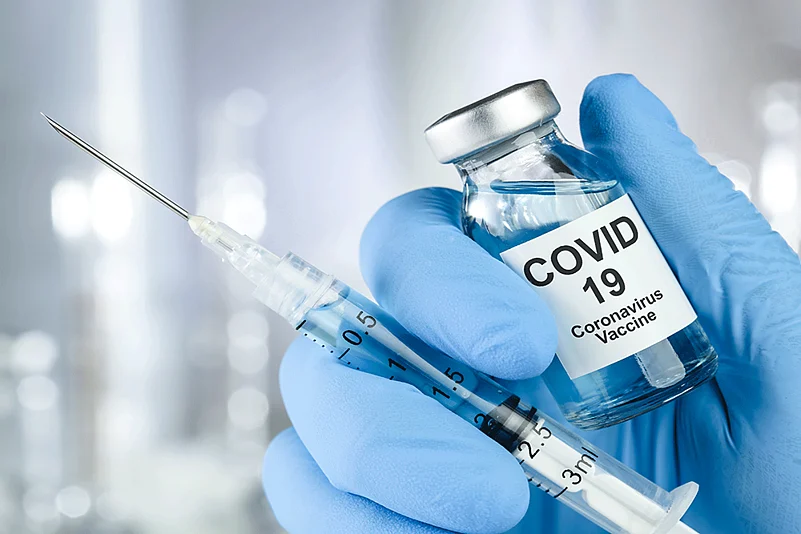The pandemic took a serious turn when the second wave of Covid plagued India's population. It claimed many lives and affected not just the adults but also children. While the possibility of a third wave continues to frighten the masses, the scientific discussion around vaccines causing blood clotting is going on for a long period of time now.
The very rare blood clots that can be caused by the Oxford/AstraZeneca coronavirus vaccine can be aggressive and deadly but is very rare, leading scientists have concluded in the findings of the first study of its kind.
A research team led by Dr Sue Pavord of the Oxford University Hospitals NHS Foundation Trust examined vaccine-induced immune thrombocytopenia and thrombosis (VITT).
Advertisement
Their paper, published in the ‘New England Journal of Medicine’, looked at symptoms, signs and outcomes of the first 220 UK cases of VITT and found that the overall mortality rate of those presenting to hospitals with definite or probable VITT was just over 22 per cent.
The chances of death increased significantly the lower the platelet count and the greater the activation of the blood clotting system, increasing to 73 per cent in patients with a very low platelet count and intracranial haemorrhage following blood clots in the brain (cerebral venous sinus thrombosis – CVST).
“It's important to stress that this kind of reaction to the Oxford/AstraZeneca vaccine is very rare,” said Dr Pavord.
Advertisement
"In those aged under 50, incidence is around one in 50,000 people who have received the vaccine. But our study shows that for those who develop VITT, it can be devastating: it often affects young, otherwise healthy vaccine recipients and has high mortality. It is particularly dangerous when the patient has a low platelet count and bleeding in the brain,” she said.
VITT is a new thrombotic syndrome associated with the ChAdOx1 nCoV-19 vaccination, the Oxford University’s COVID-19 vaccine being produced as Covishield in India. The Expert Haematology Panel, comprising Doctors Sue Pavord, Beverley Hunt, Marie Scully, Will Lester and Mike Makris, and Catherine Bagot (Scotland), conducted daily meetings during this period to support UK haematologists with patient diagnosis and management.
The team said it had not seen any new cases of VITT in the past three to four weeks, suggesting that the UK’s Joint Committee on Vaccination and Immunisation (JCVI) decision to offer an alternative vaccine to under-40s may have played a role.
"VITT is a very new syndrome, and we are still working out what the most effective treatment is, but identifying prognostic markers has helped to determine what is the more effective way to manage the condition. For example, we have adapted our treatments for patients with the most severe disease, to include plasma exchange with some success," said Dr Pavord.
Advertisement
"We have worked relentlessly to understand and manage this new condition, so that the hugely successful vaccine roll out can continue, which is the most viable solution to the global pandemic," she added.
Some 85 per cent of the patients studied were under the age of 60, despite most of the elderly population having been vaccinated. Almost all of those presenting to hospital experienced the condition between five and 30 days after their first vaccination with the Oxford/AstraZeneca vaccine. There was no difference in incidence between the sexes, and no prior medical condition was seen more often than expected for the general population.
Advertisement
Oxford University Hospitals (OUH) said it has increased clinic capacity to provide dedicated medical care for patients with VITT, to ensure long-term monitoring and support for these patients and others who develop low platelets after COVID-19 vaccination.
With PTI inputs




















